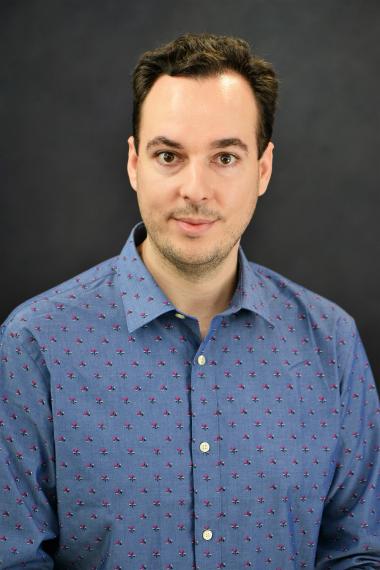Rafael Santos

Find Related People by Keyword
Education and Employment Background
Dr. Rafael Santos received his PhD from the KU Leuven, Belgium, in 2013. He has worked at Zenon Environmental, Vale Inco, and Sheridan College Institute of Technology and Advanced Learning. Santos is a registered Professional Engineer of Ontario. He joined the University of Guelph’s School of Engineering in 2017 where he is an Associate Professor.
Research Themes
Santos's main area of research is in the areas of water and solid waste treatment, environmental remediation, applied mineralogy and geochemistry, and carbon dioxide sequestration. He works to transform waste materials into valuable products and carbon sinks. Some examples of his work include turning steelmaking slags into paper fillers, turning incineration ashes into adsorbents, and turning carbon dioxide into building material. His aim is to reduce the environmental impact of industrial activities while contributing to the sustainable development of society. He is also interested in developing new reactor technologies and processing routes that consume less energy, use less hazardous substances, and are safer to operate. Santos has experimented with the use of ultrasound to speed up reactions, with tubular reactors to better control product properties, and with hot-stage reactions to take advantage of energy that is normally wasted. Santos is looking to apply his skills and expertise to new areas of research relevant to Southern Ontario and beyond, including sustainable agriculture, the food industry, the mining industry, and preservation of water resources. Key areas of focus include:
- CO2 capture, utilization, and sequestration. Santos has conducted extensive research on the sequestration of CO2 from industrial emissions sources and from the atmosphere, using mineral carbonation reactions to trap CO2 as solid carbonates.
- Solid waste treatment and valorization. Santos has also examined using hydrothermal and supercritical reactions to valorize industrial and agricultural solid wastes. He has sought to extract and recover metals from solid wastes, reduce the leaching and instability of solid wastes thereby reducing their environmental impact, and convert solid wastes into building materials, paper fillers, adsorbents and soil amendments. Valorization strategies include ambient weathering, CO2 curing, thin-film/aqueous/sonochemical/hot-stage/supercritical carbonation, and catalytic wet oxidation.
- Process intensification and multi-scale engineering. Santos and his research team have been exploring process intensification techniques, such as sonication, mechanochemistry and reactive separations, to overcome mass transfer and conversion limitations of solid waste treatment and valorization reactions.
Highlights
- Fellow, Scialog: Negative Emissions Science, 2020-present
- Editorial Board Member, Earth (2020-present), Minerals (2018-present), Open Engineering (2017-present)
- NSERC Discovery Grant and Launch Supplement, 2019-2024
- Ontario Ministry of Research and Innovation Low Carbon Innovation Fund, 2017-2020
- Publons Advisor, 2015-present
Media Coverage
Air Pollution
Carbon Capture
- Capturing Carbon | College of Engineering and Physical Sciences (uoguelph.ca)
- End Credits Radio Show: Talk to an Expert
- U of G CEPS: Capturing Carbon
- Research Corporation for Scientific Advancement: Eight projects win Scialog: Negative Emissions Science Funding
- Soils at Guelph: Trapping carbon in agricultural soils with wollastonite